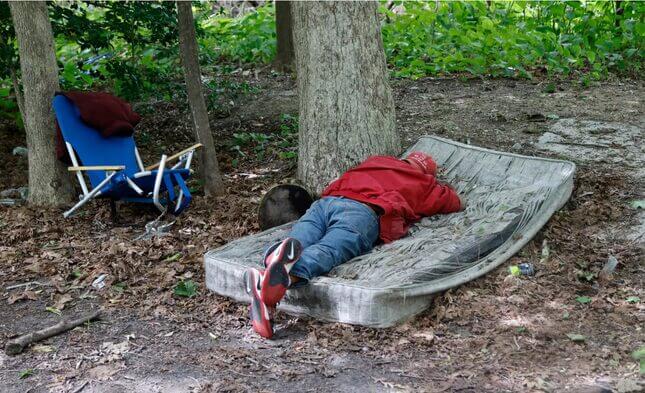The Hamptons Now Has Its Own Homeless Encampment
The migrant workers who maintain the seaside communities for the obscenely rich are forced to live in the woods.
EntertainmentEntertainment

For the obscenely wealthy and unpardonably white, the Hamptons has long been synonymous with escapism: Former Today show anchor and alleged sexual predator Matt Lauer sought its refuge when he was terminated for sexual harassment; Kourtney and Khloe Kardashian took up temporary residency in the snobby string of seaside communities as the former dealt with her eroding relationship; and who could forget the great “white-collar quarantine” of 2020, which saw scores of rich city-dwellers and celebrities fleeing virus-laden urban sprawls in lieu of uninfected sands?
In a positively American plot twist, the woods of the Hamptons have also recently become the site of a series of encampments for migrant workers who maintain the communities’ many mammoth estates, yet can’t afford to obtain their own place to live.
A staggering report from the New York Post has revealed that several “squalid” encampments have been established by migrant workers in Southampton and in the waterfront village of Westhampton Beach. That’s right—the very individuals forced to subject themselves to the back-breaking labor of sustaining the splendor of the seaside retreat for the nation’s elites have no choice but to live amongst the thicket, due in-part to the soaring cost of residency.
“I work for very rich people in the Hamptons but I can’t afford somewhere to live,” Juan Antonio Morales told the Post. “I am paid very little and an apartment costs too much money.”
-

-

-

-

-

-

-

-

-

-

-

-

-

-

-

-

-

-

-

-

-

-

-

-

-

-

-

-

-

-

-

-

-

-

-

-

-

-

-

-








































